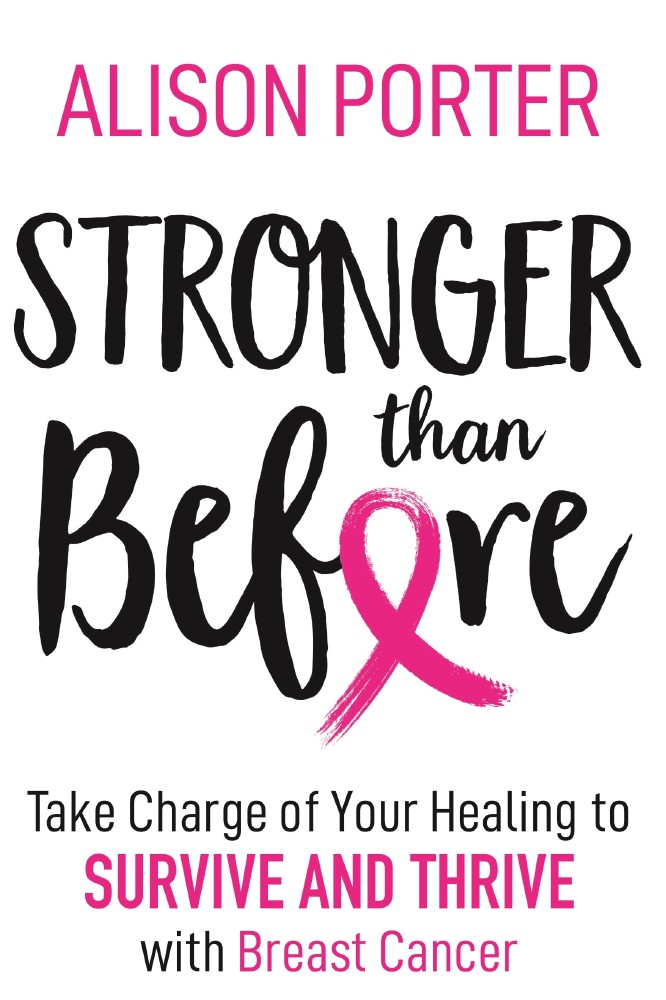Alison Porter, author of Stronger Than Before: Take Charge Of Your Healing To Survive And Thrive With Breast Cancer, talks us through conversations for family and friends. Learn more about Alison’s book at www.alisonporter.co.uk.

Stronger Than Before
To support a loved one through breast cancer, you’re going to have to live with her distress. You can’t pretend it’s not there, or minimise it to keep yourself comfortable. It’s OK to say ‘I’m so sorry this is happening to you’ and ‘It must be so hard – my heart goes out to you.’
That’s a world away from the faux-support of ‘You’ll be fine’ or ‘You’ll beat this for sure.’ She knows there’s no certainty of outcome. However positive she may seem, she still can’t avoid the fear that comes with a breast cancer diagnosis. Platitudes about it all being OK ring false when your life is at risk.
While there’s no one-size-fits-all approach to supporting someone through breast cancer, here are some simple truths to bear in mind.
You can’t fix this
Your job is to listen. You can’t make it better, but you can be there for her. That means letting her speak when she needs to and not pressing her if she doesn’t. Just let your loved one be who she is, without judgement. You aren’t expected to do anything, other than just be there. She simply wants the comfort of knowing that you understand.
When you listen, pay attention
There may be long delays between stages of treatment. Constantly hearing ‘Have you heard anything?’ when you’ve already explained the situation is enormously frustrating. It shows that you haven’t cared enough to pay attention. Try to remember your last conversation, so you can pick up where you left off, rather than keep asking the same question.
Do something kind
Breast cancer patients will hear countless people say ‘Let me know if I can do anything’, but so few will actually do something thoughtful. Bring a meal to her at home, buy her a magazine or plan a night in with a film. Just be careful with food and drink. Ask first. She could be gung-ho with an anti-cancer diet or delighted to have a bit of a blowout.
Keep your opinions to yourself
Making decisions about cancer treatments is a delicate balance of knowing what’s right for your beliefs, your body and your circumstances. Questioning her choices feels like an attack and adds even more uncertainty to the mix. If you can’t say something supportive, don’t say anything at all.
Distractions are always welcome
Breast cancer feels like a full-time job, with endless appointments. If you’re offering a loved one a lift to the hospital, plan to go somewhere with her afterwards. Turn a necessary journey into a bit of fun. Don’t always feel as if you have to talk about illness - having a laugh is so therapeutic.
Be practical
Your loved one will need a lot more help than she’s used to. She may be unable to drive after surgery, or find it difficult to lift or carry anything. Offer to do the shopping, cook a meal, or be the person who comes to appointments with her. Find ways to lighten the load.

